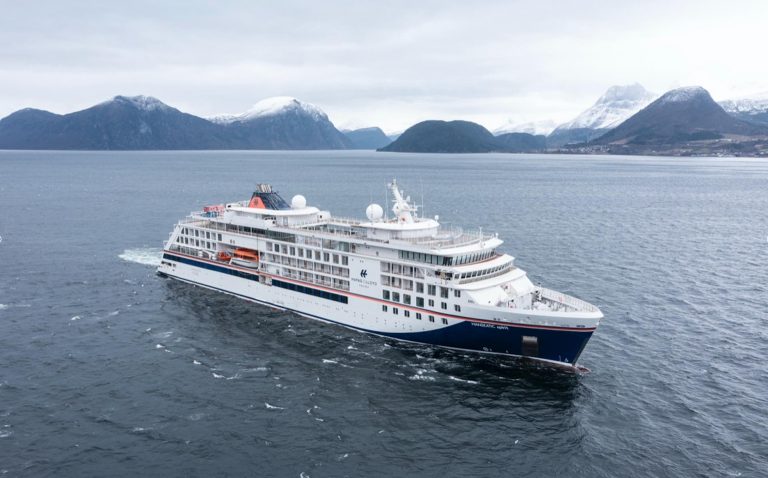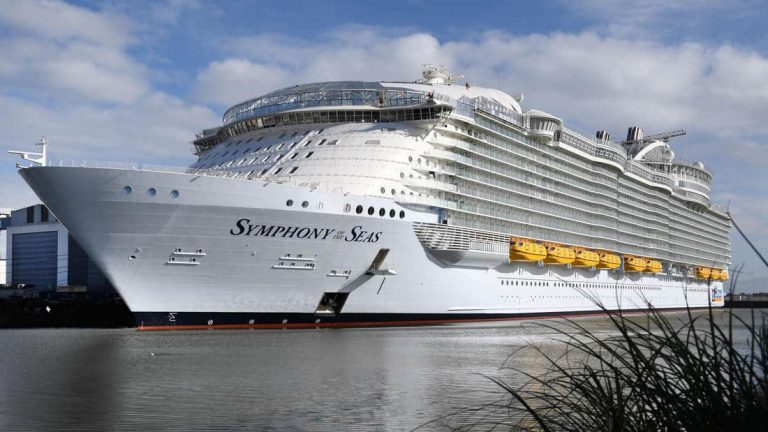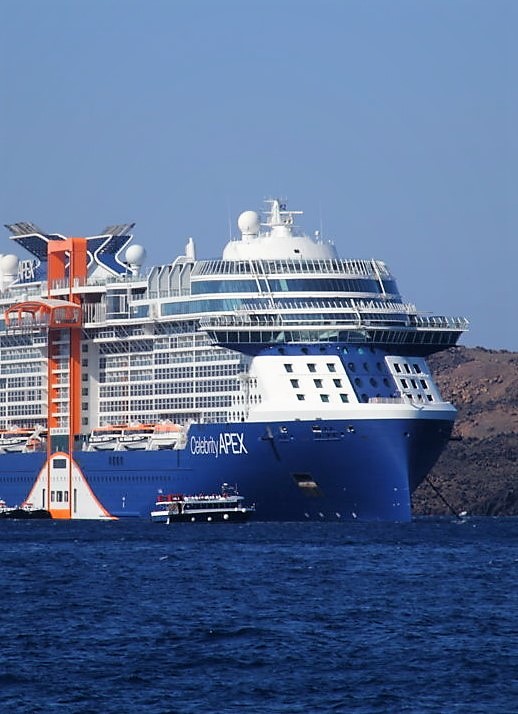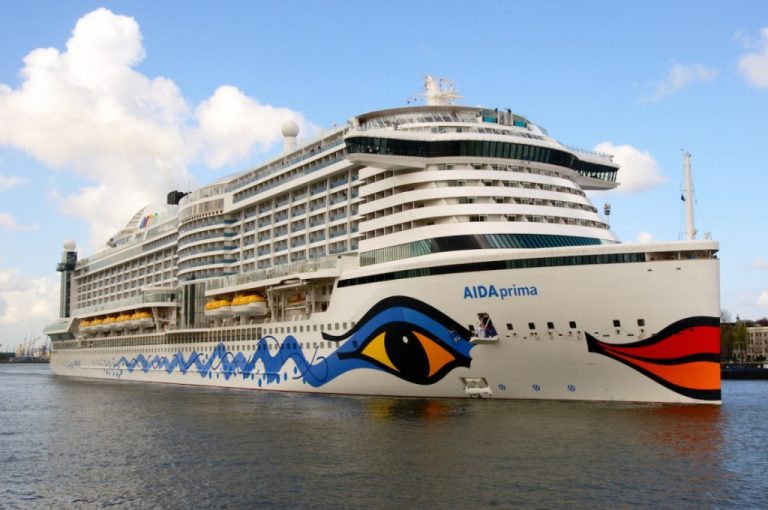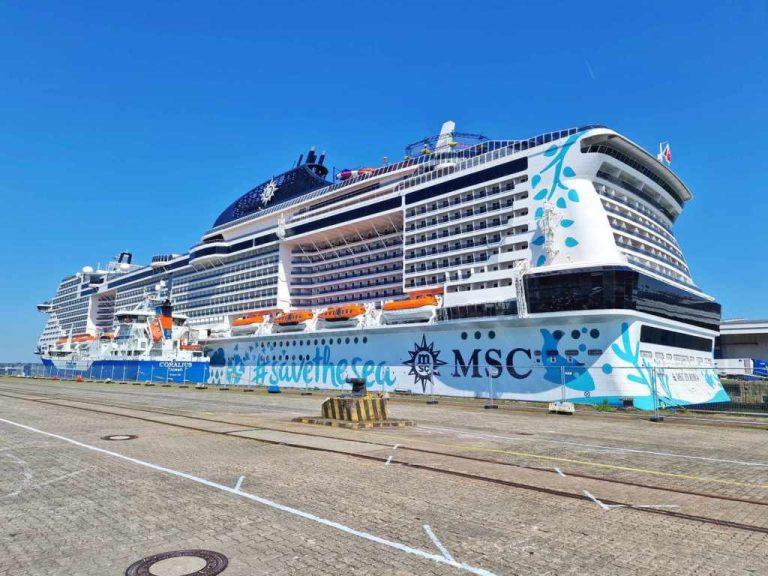Biofuels on the green route of cruise ships
A Hapag-Lloyd Kreuzfahrten ship has used 100% biofuel for the first time. The Hanseatic Spirit refueled with biofuel in Amsterdam, as confirmed by the company.
The fuel was supplied by GoodFuels. In 2022, it was its sister ship, the Hanseatic Inspiration, that successfully tested a 30% biofuel and marine diesel mixture. This certified biofuel, obtained from edible oil residues, reduced CO2 emissions by up to 90% compared to fossil fuels while containing very little sulfur oxide. In Amsterdam, for the first time, the “Spirit” switched completely to an environmentally friendly second-generation biofuel, produced from residues and waste materials. In just two years, another significant milestone has been reached, moving from a hybrid blend to pure biofuel. The challenge with these eco-friendly fuels, however, is that they are still too expensive and difficult to source in large quantities. A large cruise ship would need several hundred tons of bunker fuel for a week-long voyage.
Hanseatic Spirit: la nuova nave di Hapag-Lloyd Cruises
Symphony of the Seas
Royal Caribbean Group, on the other hand, began testing biofuels in 2022 and extended this effort to Europe in 2023, particularly on two ships: the Symphony of the Seas from Royal Caribbean International and the Celebrity Apex from Celebrity Cruises. The biofuel blends tested were produced by purifying renewable raw materials such as waste oils and fats, and combining them with fuel oil to create a more sustainable and cleaner fuel. The biofuel blends tested are accredited by the International Sustainability and Carbon Certification (ISCC). Both ships completed multiple voyages using this green blend, providing data on the biofuel’s capabilities, which will help accelerate the American group’s plans to continue testing different types of biofuels in future seasons. Meanwhile, strategic partnerships with suppliers and ports are being explored to ensure the availability of biofuels and the necessary infrastructure to support the maritime energy transition.
Carnival Corporation & Plc., with its subsidiary AIDA Kreuzfahrten, refueled its AIDAprima in Rotterdam for the first time last September, using 100% renewable biofuel as part of a pilot project to evaluate the fuel’s performance during regular ship operations for potential future use. The blended biofuel was produced entirely from advanced raw materials, organic waste, or residues. The sustainable biofuel Bio Marine Fuel (BMF100), provided by VARO Energy, is expected to reduce greenhouse gas emissions by at least 85% compared to conventional fossil fuels. After refueling in Rotterdam, AIDAprima continued testing the new biofuel during normal operations on subsequent voyages from Hamburg through the Norwegian fjords. The results of these trials will help determine its potential for future use across the AIDA fleet. For the German mass-market brand, it is important to use second-generation biofuels on board, as they are produced exclusively from organic waste and residual materials. Additionally, compared to other technological innovations, the use of biofuels in normal ship operations is simple because they can be used without major modifications to existing ship engines and tank infrastructure. In general, and depending on the specific biofuel used, greenhouse gas emissions can be reduced by at least 85% compared to fossil fuels.
Elegancia y modernidad: todas las fotos de Celebrity Apex
AIDAprima
Euribia Kiel
In 2023, MSC Cruises celebrated a historic first: the first cruise ship voyage with zero greenhouse gas emissions. This successful experiment took place during the delivery voyage of the MSC Euribia from Saint-Nazaire to Copenhagen. This destination was reached using 400 tons of biogas obtained from the livestock industry, specifically methane from animal waste. This choice completely eliminated CO2 emissions from their source, ensuring zero-emission transport and a drastic reduction in emissions during the combustion of the biogas.
In short, the word “bio” is becoming increasingly popular in the cruise industry, which to date has not yet defined a single path toward the decarbonization of the sector. However, these tests will help find that path, as shipyards are currently experimenting with all possible solutions such as hydrogen, ammonia, methanol, and more. For now, LNG remains the transitional technology, but the road to 2050 and climate neutrality for the sector is still long.
Don’t miss the latest news, updates, and reviews from the world of cruises on Cruising Journal, featuring photos, videos, and special cruise deals.

